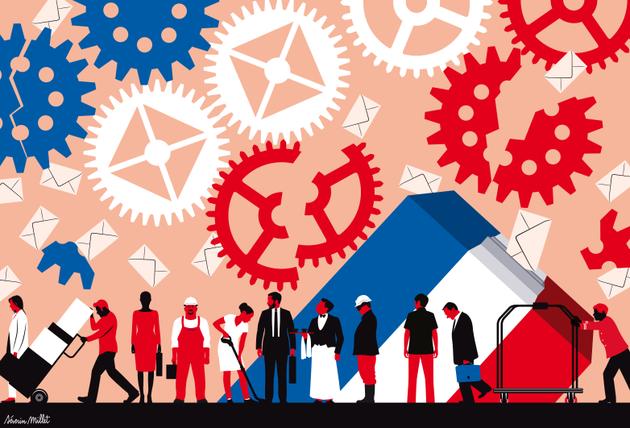

How working conditions weigh on electoral choices
In DepthThe deterioration of working conditions is a determining factor in abstention and the protest vote, according to experts and French voters Le Monde spoke to over the last few years.

By her own admission, Eliane (not her real name), 52, had "never been very politicized". "Until we were sold in a brutal way," she explained. In receivership, the clothing retail company she works for, La Halle, was bought out in 2021. An order clerk in central France's Indre region, she's among those who have kept their jobs. "Twenty years of staggered working hours! That's not what I'm complaining about. It's about the way employees are treated," she said. "It's normal for a company to want to make money, but there are ways of doing things!"
She recalled the shareholders who "thought only of themselves," and not of her 294 colleagues who lost their jobs. The discrepancy between the reality of how the work was organized and the regular talk of benevolence, "today's buzzword." "It's all window dressing. What they want is productivity, even if safety isn't there," she said, deeply indignant. She also mentions how a machine, the "sorter," has reduced all initiative at her workstation. So many signs of a "lack of respect" that is also embodied in the fact that she is "never informed in time" of what's going on in the company. "There's little shared moments."
This accumulated rage has led her to change the way she votes, she explained. For the first time, in the second round of the 2022 presidential election, she chose the Rassemblement National (RN) candidate, Marine Le Pen against Emmanuel Macron. For the first round of the partliamentary elections, on Sunday, June 30, and systematically from now on, she confirmed, she will vote "left in the first round, and then, if necessary, against Macron."
'Expectation of democratic justice'
The reasons for voting one way or another, or for abstaining, can not only be explained by where someone lives, or their purchasing power difficulties. Like Eliane, many of the French people we've met over the last few years and reached out to again since Macron announced the dissolution of the Assemblée Nationale, feel that their experiences of malaise at work weigh heavily on their choice. "People expect democratic justice at work, they want to have a say in what concerns them, particularly in terms of organization or the distribution of profits. All this mobilizes their conception of what is fair and unfair. It's a stronger political experience than going to the polls once every five years," stressed Isabelle Ferreras, professor at the Catholic University of Louvain, in Belgium, and senior research associate at the Center for Labor and a Just Economy at Harvard University. "How can we imagine that not feeling respected on a daily basis at work has no impact on electoral behavior?"
You have 82.01% of this article left to read. The rest is for subscribers only.
